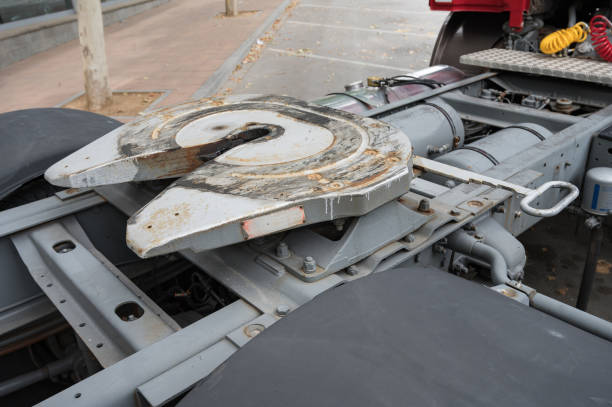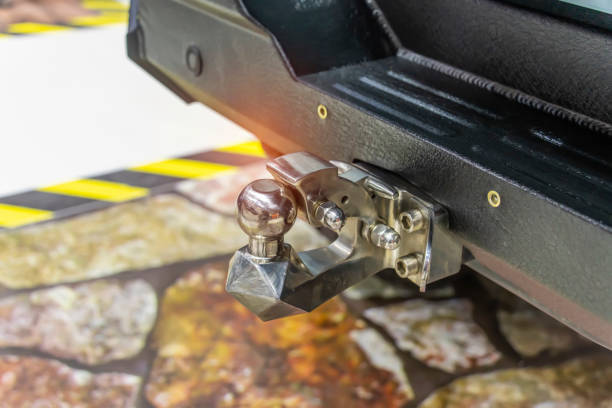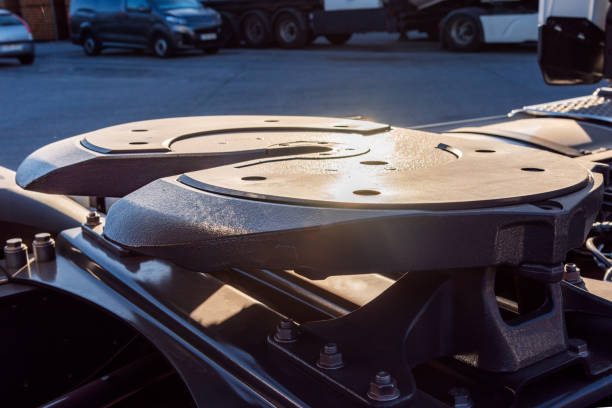Fifth Wheel Hitch Weight Limits: Comprehensive Appear in Towing Safely
Fifth Wheel Hitch Weight Limits
Fifth-wheel trailer is the land of freedom and discovery, but safety is not optional. The knowledge of the same is the most important aspect of towing. Fifth Wheel Hitch Weight Limits—a factor that failing to attend to would cast sounding the death knell between your automobile and your travel. Whether you are a first-time RV-towner or you are an experienced traveler wanting to bring yourself up to speed on this subject of fifth-wheel hitch weight capacities and its direct bearing on performance and both safety and legality, this guide will have you up to speed and onto the road with a certainty of success.

Why Matter
Fifth-wheel trailers are different from bumper-pull trailers. They are fitted on the rear of a pickup vehicle, which is steadier, and it can have more weight. However, this arrangement creates unnecessary weight just above the rear axle of the truck. Calculate just how much of this load your car can safely retain. Ignoring such limits, passengers face more risks of damaging vehicles, failing to brake properly, and losing steering control, including potential blowups. In a nutshell, these boundaries must become familiar and be adhered to in order to keep the rig in its place and cause your travel to be enjoyable.
Knowing vital terms of weight
Before going further, it is necessary to summarize some basic weight terms:
- Gross Vehicle Weight Rating (GVWR): This is the maximum mass of weight of your vehicle that the vehicle can safely tow with passengers, fuel, and cargo.
- Gross Combined Weight Rating (GCWR): This rating (maximum weight of a vehicle and all loads that it is towing) is also called Gross Combined Weight Rating.
- Pin Weight (Kingpin Weight): The weight that the fifth-wheel hitch applies to the truck’s rear axle. It is directly related to Fifth Wheel Hitch Weight Limits.
- Payload Capacity: The total weight of something that your truck can pick up in the bed and the weight of the hitch pin.
All of these figures are combined to see whether you are towing according to the safe limits. Of importance is not only the weight of the trailer but also the distribution and what percentage is resting on your hitch.
Using Your Hitch Weight Calculation How to
As a rule of thumb, the weight of the test pin should be about 15-25 percent of the gross weight of the trailer. For illustration purposes, you have the fifth-wheel trailer, which has a fifth-wheel trailer weight of 12,000 pounds; then the pin weight can vary between 1,800 and 3,000 pounds. To ensure that you are on the right side of Fifth Wheel Hitch Weight Limits, you will be expected to:
- Check your pickup payload and GVWR.
- Think of the carrying capacity of the passengers, fuel, and itinerant cargo on the truck.
- Subtract them from what you can carry.
- Ensure that the remaining amount of capacity is more than the pin weight of your trailer.
This will ensure that your rear axle does not get overworked, and therefore the maximum braking and steering performance can be achieved.
Connectivity of Hitch and Truck Class
It does not all carry in every fifth-wheel truck. The light trucks with a payload of Fifth Wheel Hitch Weight Limits of fewer than 2,000 pounds typically include light-duty trucks, which are exemplified by the Ford F-150 and Chevy 1500. Certain heavy-duty cars like the Ford F-350 or Ram 3500 can support hitch loads that exceed 5,000 pounds with ease. It is crucial to actually employ a truck with proper configuration to your trailer. A typical mistake is that because a truck can tow a specified weight, then it can support the weight of the hitch that is needed. The latter may lead to overload of axles, which is unsafe and prohibited.
Rating of Aftermarket Hitches and Ratings
Not all fifth-wheel hitches fit. They are marketed by the weight ratings they have, and this is mostly indicated on the unit straightforwardly. Choosing a hitch guarantees your hitch will be rated at least at your pin weight. Using a 2,000-pound hitch simply because it is rated as such is not practical since it cannot be connected to a trailer with a 2,500-pound pin weight. Simply because the weight your truck can handle does not make the worst point of your setup overall decisive in any way. To have fewer things to worry about when you are on the road, it is worthy to purchase a high-quality hitch with the features that will fit your truck perfectly.
Insurance and the Law
Working at a rate over your rated Fifth Wheel Hitch Weight Limits is not just a matter of a mechanical problem but will have serious legal and economic consequences. Insurance companies are normally interested in investigating the matter of whether the car being used was operated within the limit of the manufacturer in case of accident. Beating them will make your policy null or claims denied. There are also special laws about towing weights that may be imposed in certain states that are not in compliance with them, hence attracting heavy fines or citations.
Warning signs you are putting yourself to the test
And after that some red signals that your setup would be pushing or surpassing safe Fifth Wheel Hitch Weight Limits:
- Sink in view (truck bed) ceilings on the trucks
- Longer stopping distance
- Irrational tire wear or overheating
- Difficulty in steering or wobbling at the rear end
In case you happen to notice one of these, it is necessary to reconsider the way you distribute your weight and go to the certified weigh station or to check it out just in case.
Hitch Weight Measuring Equipment
To be on the safe side, use
- Portable Tongue Weight Scales: These, specifically designed to be utilized by RVers, contain an easy means of comparing pin weight.
- Weigh Stations: Tested stations compute the complete measurements of each axle setup.
- Truck Stop CAT Scales: In the majority of truck stops, there are certified scales that should allow easy weighing of front and rear axles separately.
Not being lost in your numbers, as a traveler, you will be smarter and safer on your way.
Best Practices of Towing Less than the Weight Permitted
Never assume ratings on your truck; always check on them.
Consider full tanks and equipment and foodstuff and people on board.
Do not forget to consider the rating of the hitch producer.
Do so after you load and not when you hit the road.
Each time the trailers are swapped or towing orientation altered, recalculation of the same is required.
It is smart not only to stay within Fifth Wheel Hitch Weight Limits, but it is also your responsibility as a driver on a public road.
Conclusion: Good Safety Awareness through Knowing Your Limits
When it comes to towing fifth-wheel trailers, then you must place knowledge at the forefront of defense. Adequate respect for Fifth Wheel Hitch Weight Limits does not simply mean safety; it also means comfort and legality and the vehicle-compatible destruction of the equipment. It involves knowing the amount your truck can carry, your trailer pin weight, and your hitch abilities, and they all make you prepared to travel without worrying about anything. With either a long road trip across the country or a weekend road trip, you will have more predictable adventures knowing your hitch weight limitations.

FAQs
Can I increase the weight on my fifth wheel hitch weight capacity by upgrading some parts?
Other towing enhancements, e.g., better suspension and airbags, may sometimes be employed to enhance towing qualities but do not alter the published ratings in the official sense of the Fifth Wheel Hitch Weight Limits. Whatever you are unsure of, do it as indicated in the figures in your owner’s manuals.
What happens when I cross over my fifth-wheel hitch limits?
The excess of Fifth Wheel Hitch Weight Limits can provoke abandonment of control, lack of brakes, and insurance payments. It is not a risk worth taking—rearrange your outfit or use a larger-duty truck.

0 Comment